Charles E W Bean, Diaries, AWM38 3DRL 606/42/1 - April 1916 - Part 2
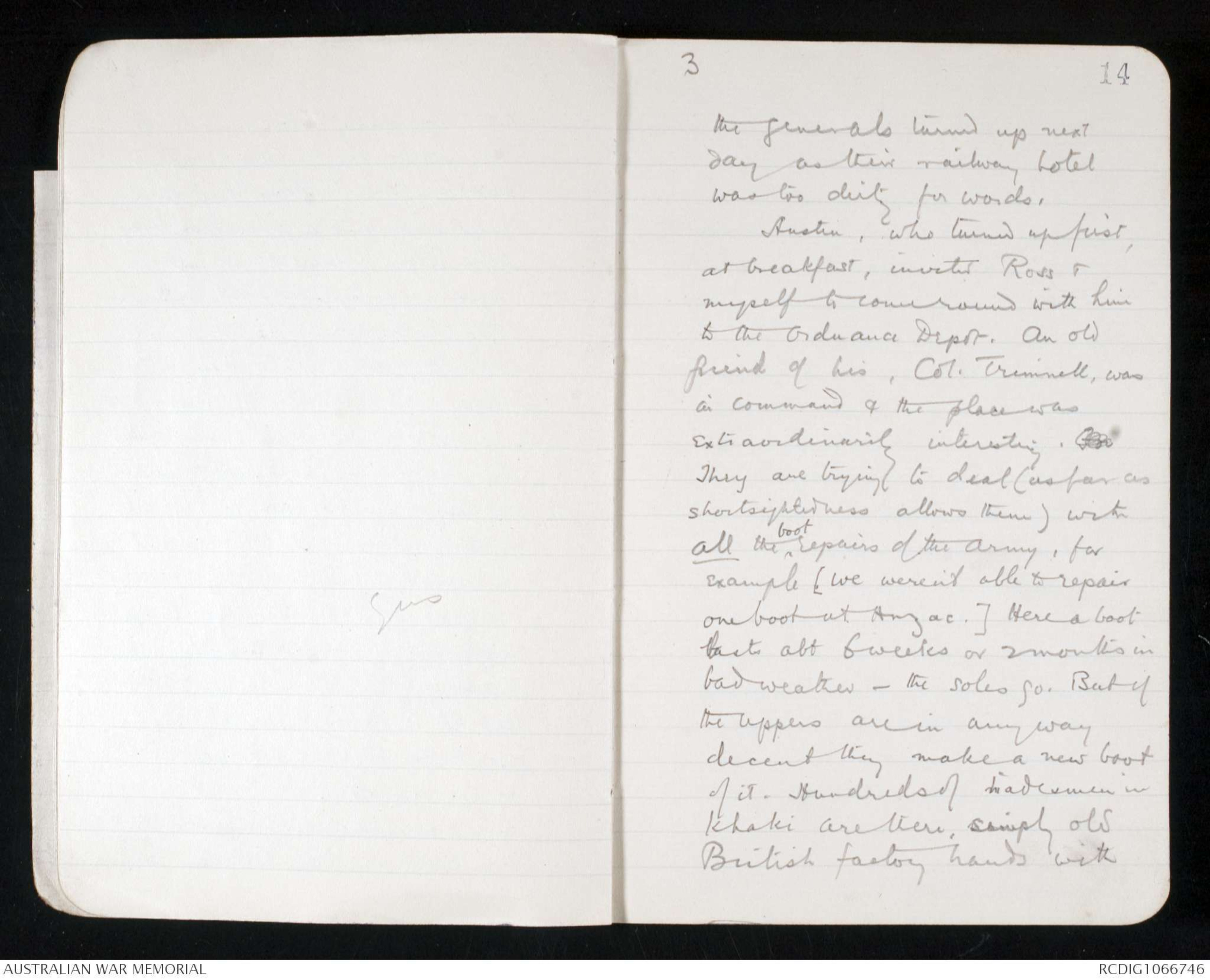
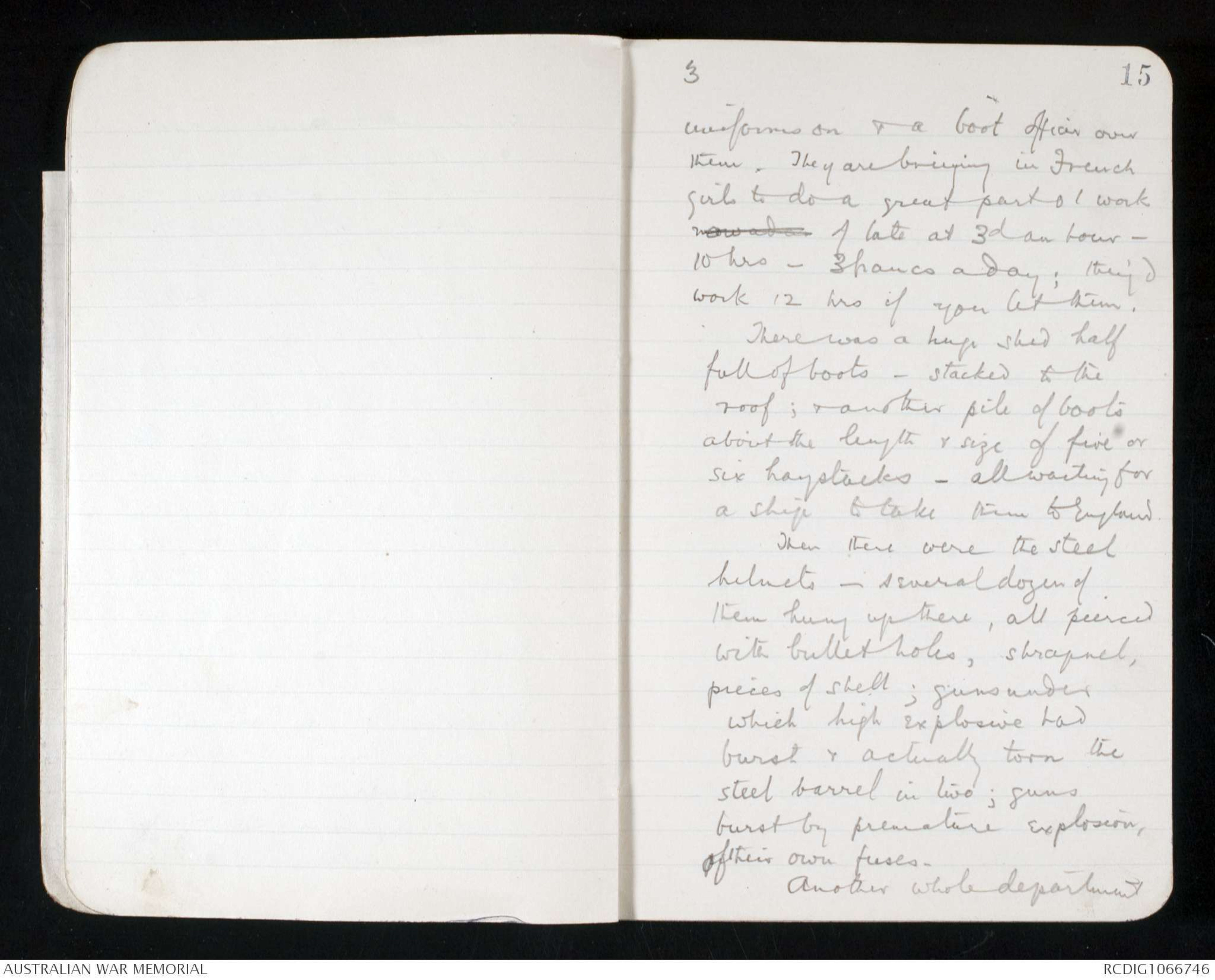
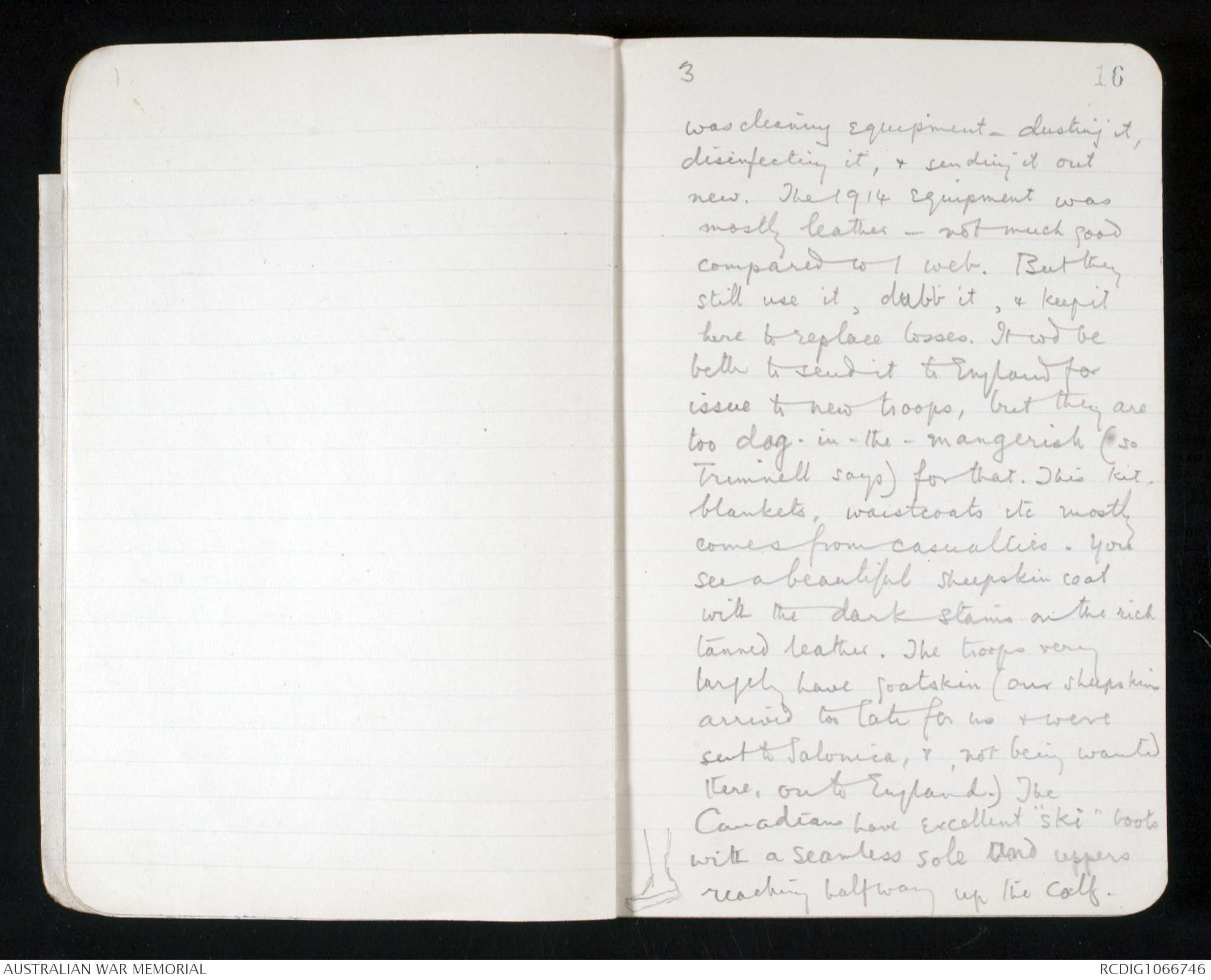
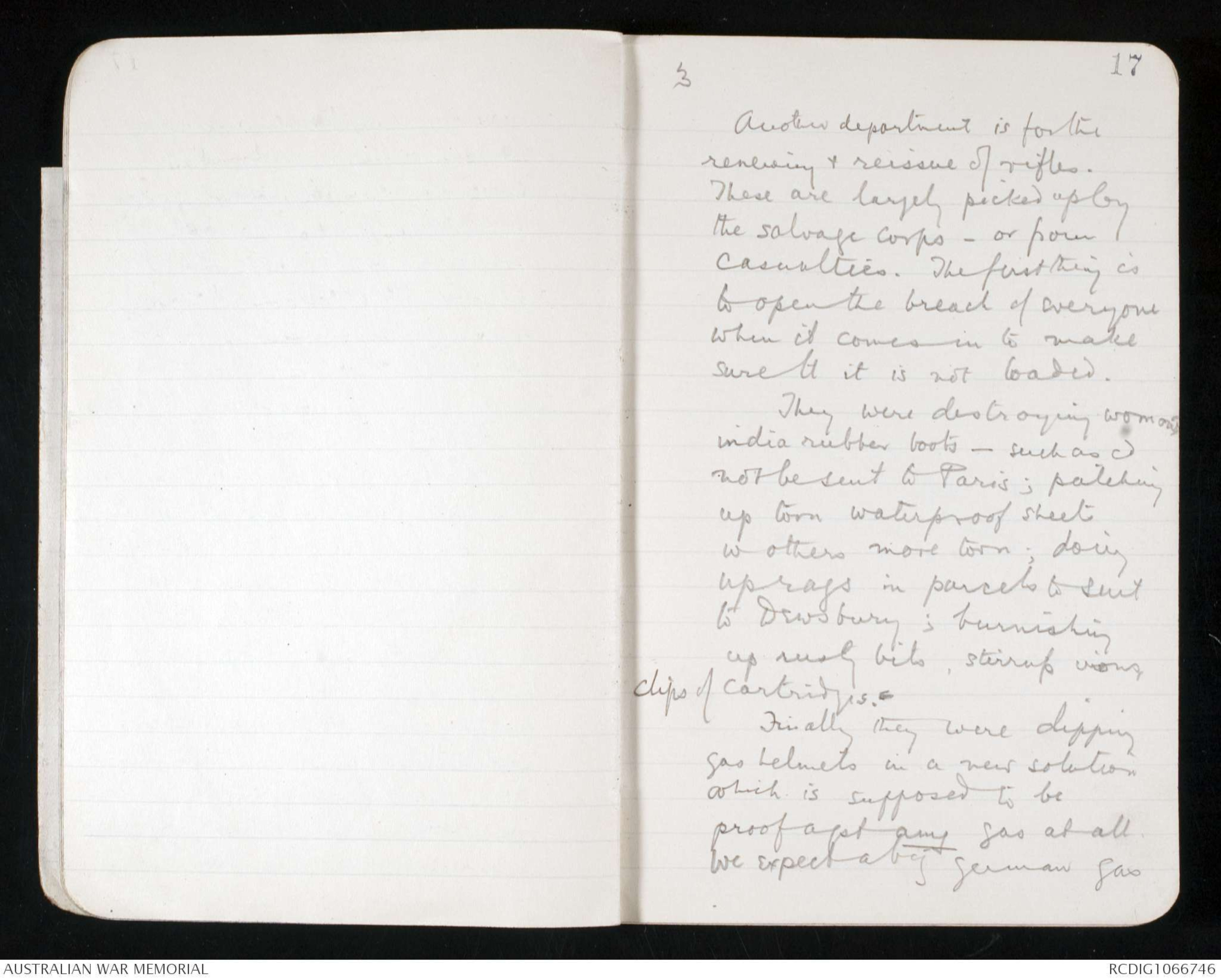
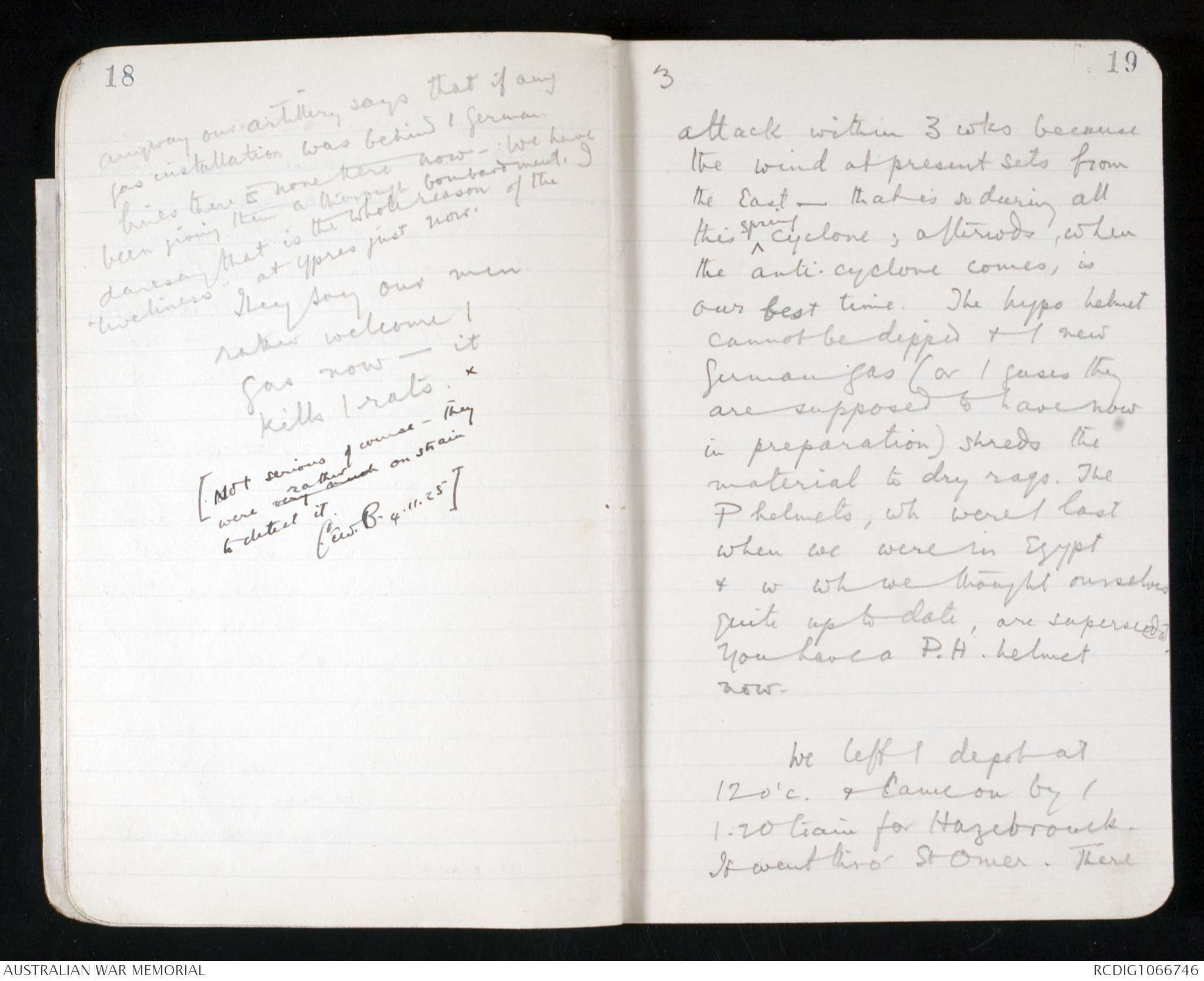
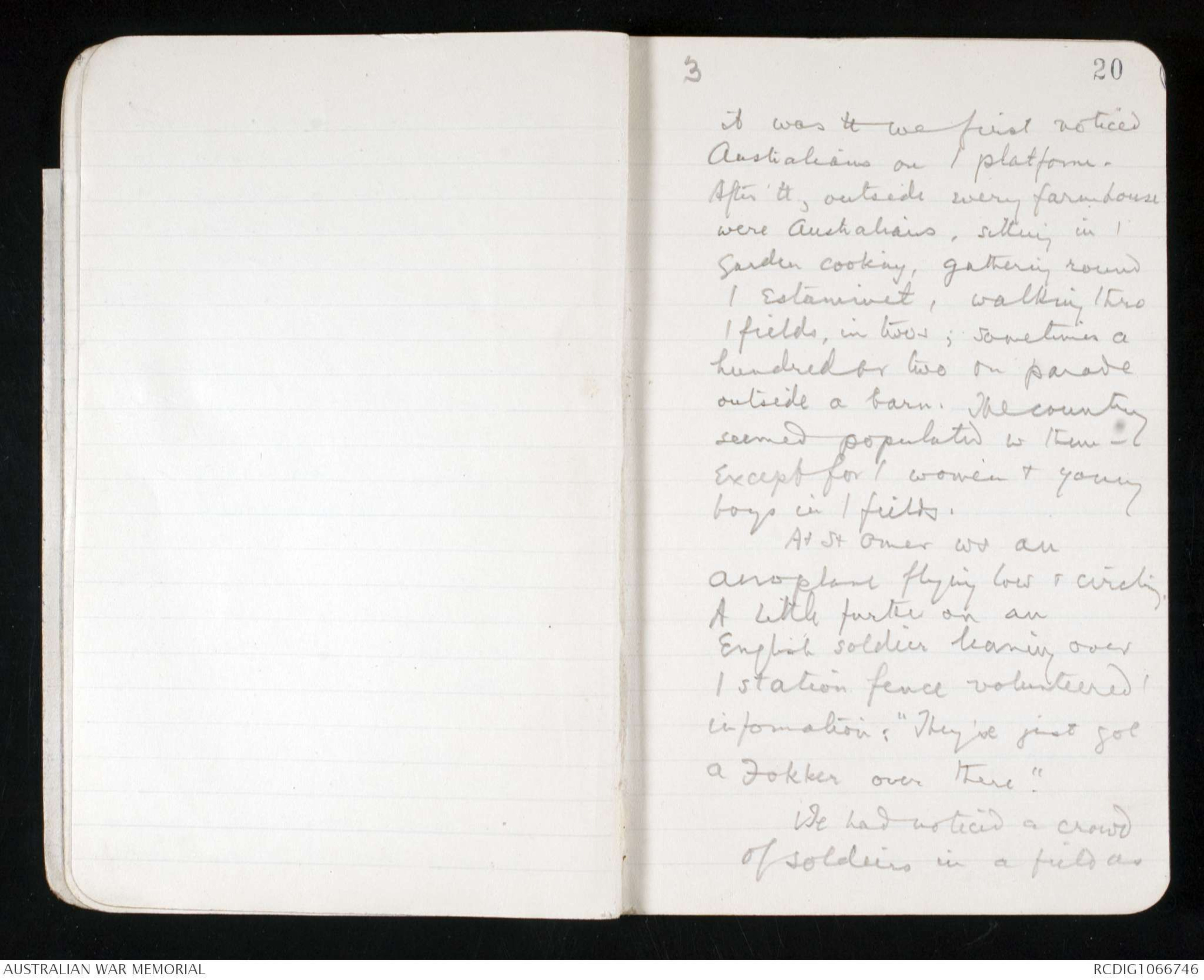
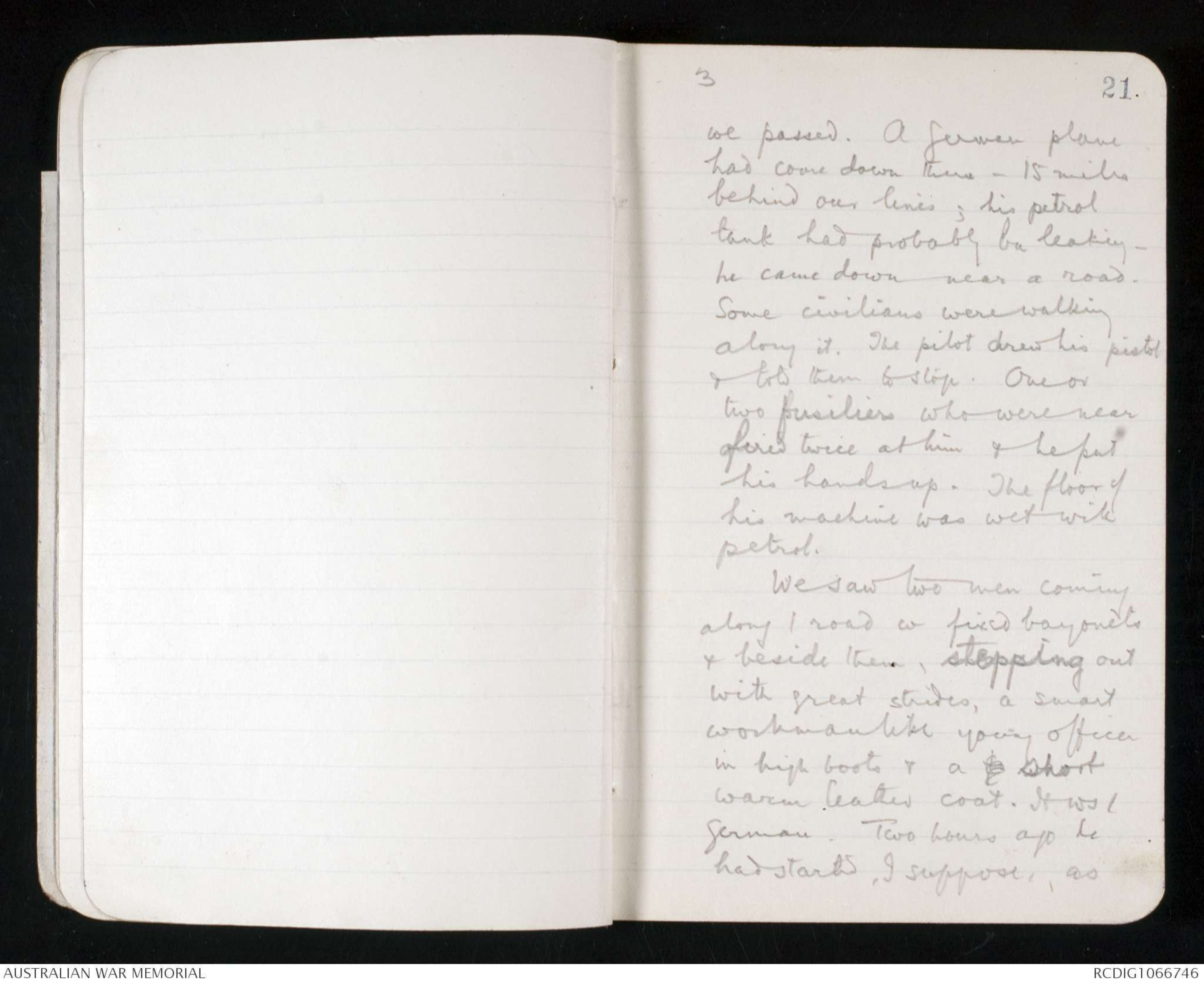
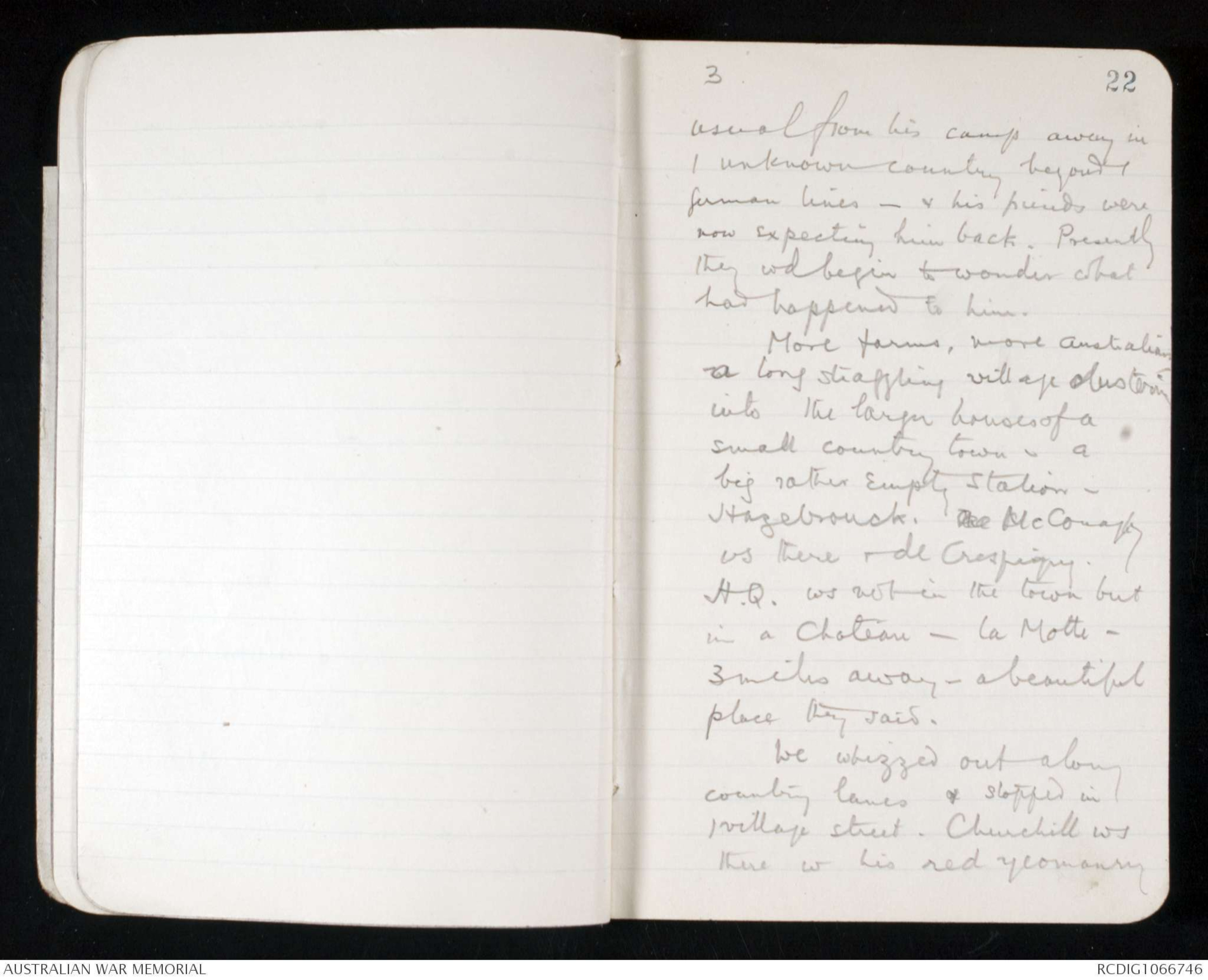
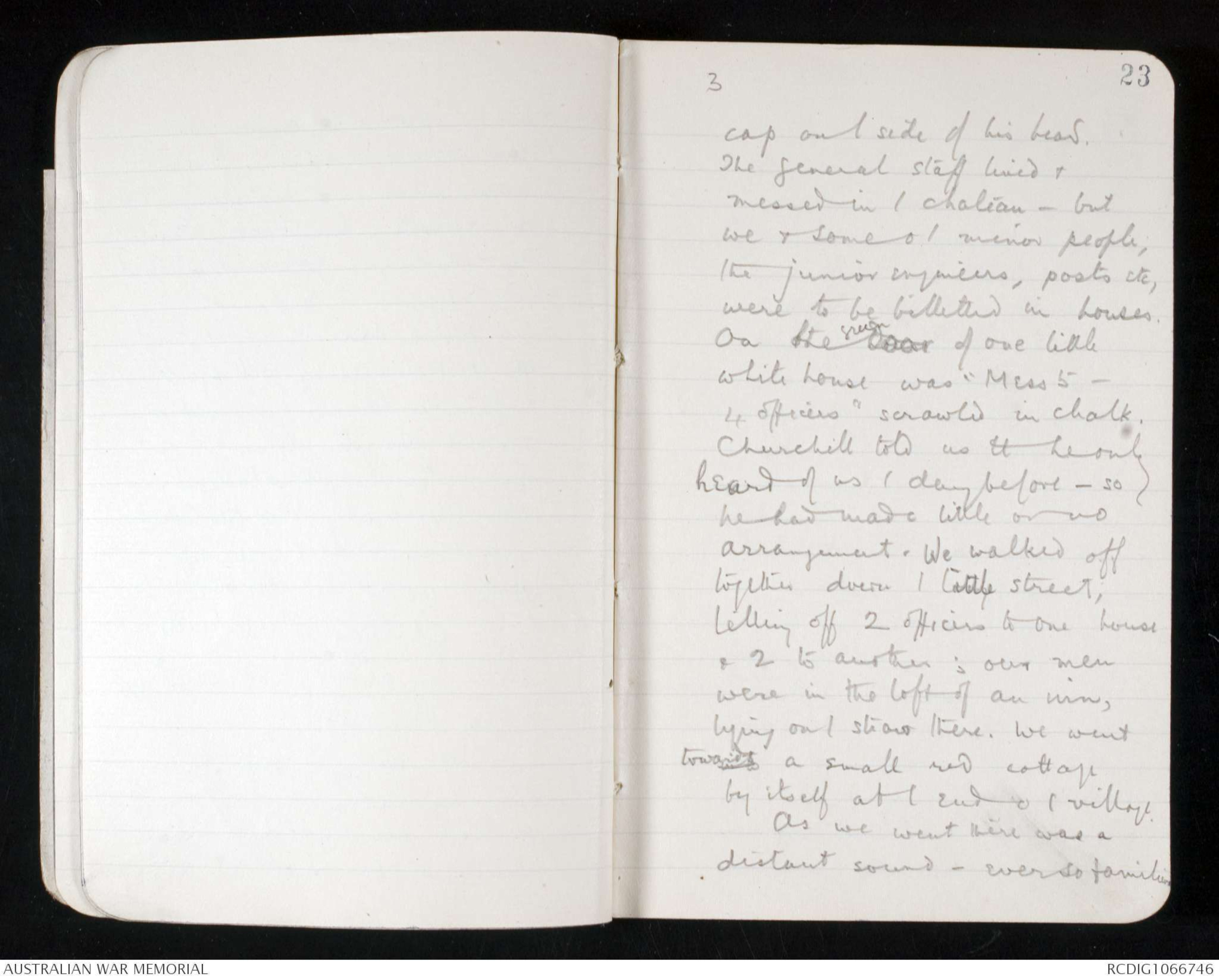
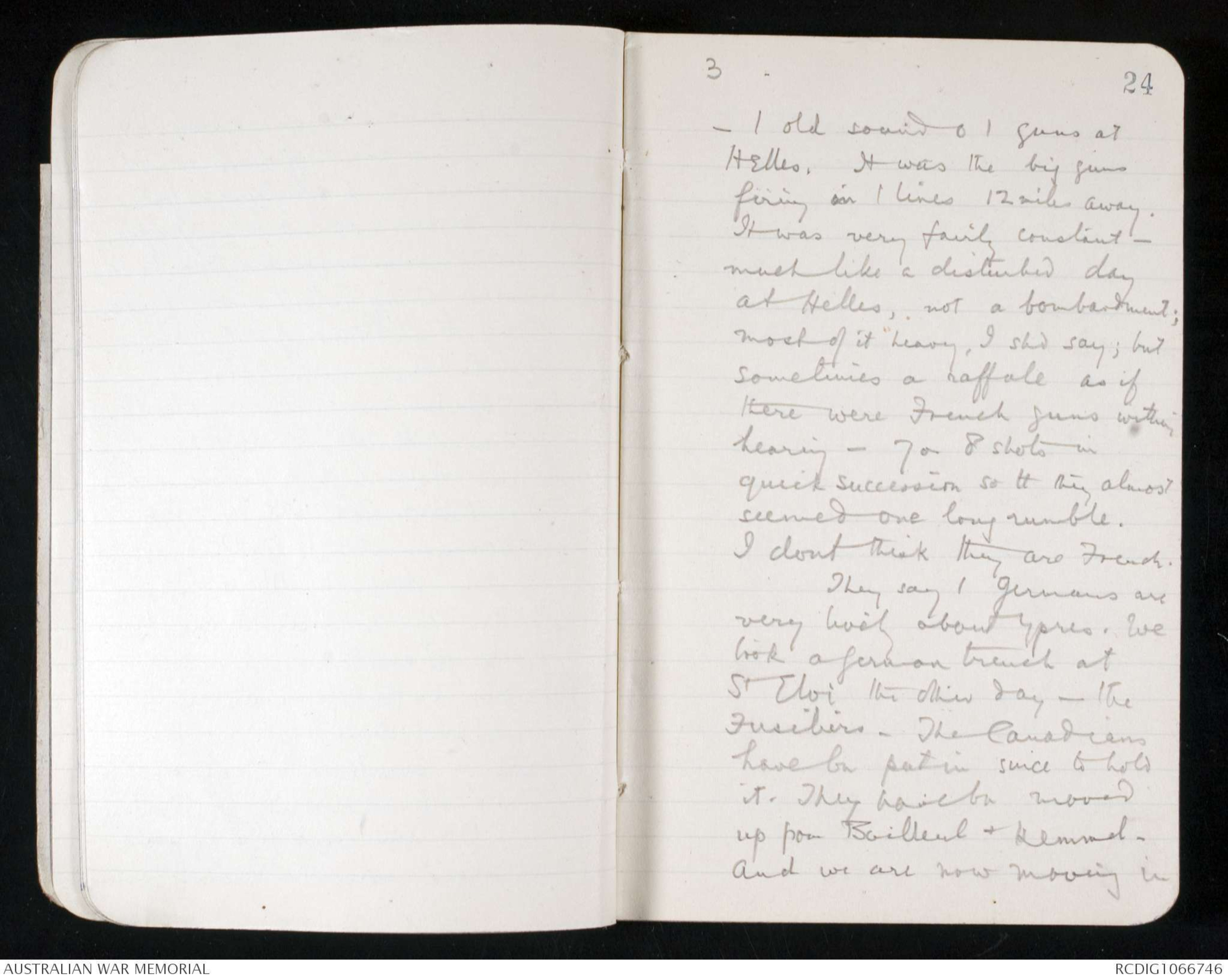
3 14
the generals turned up next
day as their railway hotel
was too dirty for words.
Austin, who turned up first,
at breakfast, invited Ross &
myself to come round with him
to the Ordnance Depot. An old
friend of his, Col. Trimnell, was
in command & the place was
extraordinarily interesting. xxx
They are trying to deal (as far as
shortsightedness allows them ) with
all the ^boot repairs of the army, for
example [we weren't able to repair
one boot at Anzac.] Here a boot
lasts abt 6 weeks or 2 months in
bad weather - the soles go. But if
the uppers are in any way
decent they make a new boot
of it. Hundreds of tradesmen in
khaki are there, simply old
British factory hands with
3 15
uniforms on & a boot officer over
them. They are bringing in French
girls to do a great part o / worknowadays of late at 3d an hour -
10 hrs - 3 francs a day; they'd
work 12 hours if you let them.
There was a huge shed half
full of boots - stacked to the
roof ; & another pile of boots
about the length & size of five or
six haystacks - all waiting for
a ship to take them to England.
Then there were the steel
helmets - several dozen of
them hung up there, all pierced
with bullet holes, shrapnel,
pieces of shell ; guns under
which high explosive had
burst & actually torn the
steel barrel in two ; guns
burst by premature explosion,
of their own fuses.
Another whole department
3 16
was cleaning equipment_ dusting it,
disinfecting it, & sending it out
new. The 1914 equipment was
mostly leather - not much good
compared to / web. But they
still use it, dubb it, & keep it
here to replace losses. It wd be
better to send it to England for
issue to new troops, but they are
too dog-in-the-mangerish ( so
Trimnell says) for that. This kit,
blankets, waistcoats etc mostly
comes from casualties. You
see a beautiful sheepskin coat
with the dark stains on the rich
tanned leather. The troops very
largely have goatskin (our sheepskins
arrived too late for us & were
sent to Salonica, & , not being wanted
there, on to England.) The
Canadians have excellent "ski" boots
with a seamless sole and uppers
reaching halfway up the calf.
Hand drawn sketch- please see original.
3 17
Another department is for the
renewing & reissue of rifles.
These are largely picked up by
the salvage corps - or from
casualties. The first thing is
to open the breach of every one
when it comes to make
sure tt it is not loaded.
They were destroying women’s
India rubber boots - such as cd
not be sent to Paris; patching
up torn waterproof sheets
w others more torn; doing
up rags into parcels to send
to Dewsbury ; burnishing
up rusty bits, stirrup irons,
clips of cartridges.
Finally they were dipping
gas helmets in a new solution
which is supposed to be
proof agst any gas at all.
We expect a big German gas
18
anyway our artillery says that if any
gas installation was behind / German
lines there [[shorthand]] none there now - We have
been giving them a thorough bombardment. I
daresay that is the whole reason of the
"liveliness" at Ypres just now.
They say our men
rather welcome /
gas now -
it kills / rats. X
[Not serious of course - they
were very much rather on strain
to detect it.
C E W B. 4.11.25]
3 19
attack within 3 wks because
the wind at present sets from
the East _ that is so during all
this ^spring cyclone ; afterwds , when
the anti -cyclone comes, is
our best time. The hypo helmet
cannot be dipped & / new
German gas (or / gas they
are supposed to have now
in preparation) shreds the
material to dry rags. The
P helmets, wh were / last
when we were in Egypt
& w wh we thought ourselves
quite up to date, are superseded.
You have a P.H. helmet
now.
We left / depot at
12 o'c. & came by /
1.20 train for Hazebrouck.
It went thro' St Omer. There
3 20
it was tt we first noticed
Australians on / platform.
After tt, outside every farmhouse
were Australians, sitting in /
garden cooking, gathering round
/ estaminet, walking thro
/ fields, in twos; sometimes a
hundred or two on parade
outside a barn. The country
seemed populated w them -
except for / women & young
boys in / fields.
At St Omer ws an
aeroplane flying low & circling.
A little further on an
English soldier leaning over
/ station fence volunteered /
information : "They've just got
a Fokker over there."
We had noticed a crowd
of soldiers in a field as
3 21
we passed. A German plane
had come down there - 15 miles
behind our lines ; his petrol
tank had probably bn leaking _
he came down near a road.
Some civilians were walking
along it. The pilot drew his pistol
& told them to stop. One or
two fusiliers who were near
fired twice at him & he put
his hands up. The floor of
his machine was wet with
petrol.
We saw two men coming
along / road w fixed bayonets
& beside them, stepping out
with great strides, a smart
workmanlike young officer
in high boots & a xx short
warm leather coat. It ws /
German. Two hours ago he
had started, I suppose, as
3 22
usual from his camp away in
/ unknown country beyond /
German lines - & his friends were
now expecting him back. Presently
they wd begin to wonder what
had happened to him.
More farms, more Australians,
a long straggling village clustering
into the larger houses of a
small country town & a
big rather empty station -
Hazebrouck. xx McConaghy
ws there & de Crespigny.
H.Q. ws not in the town but
in a Chateau - la Motte -
3 miles away - a beautiful
place they said.
We whizzed out along
country lanes & stopped in
/ village street. Churchill ws
there w his red yeomanry
3 23
cap out side of his head.
The general staff lived &
messed in / chateau - but
we & some o / minor people,
the junior engineers, posts etc,
were to be billeted in houses.
On the screen door of one little
white house was "Mess 5 -
4 officers " scrawled in chalk.
Churchill told us tt he only
heard of us / day before - so
he had made little or no
arrangement. We walked off
together down / little street,
letting off 2 officers to one house
& 2 to another ; our men
were in the loft of an inn,
lying on / straw there. We wentxx towards a small red cottage
by itself at / end of / village.
As we went there was a
distant sound - ever so familiar
3 24
- / old sound o / guns at
Helles. It was the big guns
firing in / lines 12 miles away.
It was a very fairly constant -
much like a disturbed day
at Helles, not a bombardment;
Most of it "heavy, I shd say; but
sometimes a raffale as if
there were French guns within
hearing - 7 or 8 shots in
quick succession so tt they almost
seemed one long rumble.
I don't think they are French.
They say / Germans are
very lively about Ypres. We
took a German trench at
St. Eloi the other day - the
Fusiliers - The Canadians
have bn put in since to hold
it. They have bn moved
up from Bailleul & Kemmel -
And we are now moving in
 Lulu B
Lulu BThis transcription item is now locked to you for editing. To release the lock either Save your changes or Cancel.
This lock will be automatically released after 60 minutes of inactivity.